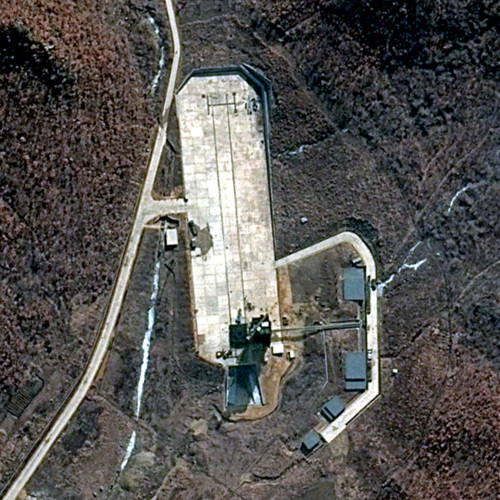The United States and its allies vow a tough response if North Korea goes ahead with its planned long-range rocket launch, but analysts say they will struggle to exert meaningful pressure on Pyongyang.
“After various governments finish beating their chests, we have to find a way to talk to the North Koreans,” said Peter Beck, Seoul representative of the Asia Foundation.
“The United States has no available options: there are no (further) meaningful sanctions that can be employed.”
Pyongyang says it will launch a satellite for peaceful scientific research sometime in a five-day window from April 12, to mark the 100th anniversary on April 15 of the birth of founding leader Kim Il-sung.
Washington and other nations view the exercise as a flimsy excuse for a ballistic missile test, which would breach United Nations resolutions and a U.S.-North Korean deal reached only in February.
But experts say the nuclear-armed nation has compelling political reasons to shrug off the international outcry, at a time when its new young leader Kim Jong-un is striving to bolster his authority with the military and the elite.
“The rocket launch will be used as an expensive firework to celebrate its becoming a ‘powerful and prosperous state,’” said Yun Duk-min of the Korea National Diplomatic Academy, referring to Pyongyang’s stated goal for 2012.
“Kim Jong-un ... needs some feats to show off his leadership that may send shivers down the spine of enemies,” Yun told a Seoul forum last week.
“It is highly likely that the North may follow it up with a nuclear test within one or two months.”
 |
This March 28 satellite file image provided by DigitalGlobe shows North Korea’s Tongchang-ri Launch Facility on the nation’s western coast. (AP-Yonhap News) |
North Korea already faces a punishing array of U.N. or bilateral measures imposed by other countries including the United States, South Korea and Japan, mainly designed to curb its banned missile and nuclear programs.
A U.N. resolution in June 2009 placed sanctions on North Korea’s arms sales, luxury goods trade and financial transactions linked to weapons programs.
But while the rocket launch is likely to be raised at the U.N. Security Council, China may push back against any tough action which could destabilize its ally and neighbor.
“China does not want to see the North facing a serious domestic crisis due to international pressure,” Andrei Lankov of Seoul’s Kookmin University told the same forum.
“For China, domestic stability in the North is more important than international concerns over its nuclear and missile programs.”
Beck told AFP that China would not like the launch but can live with it.
“It can live with any bad behavior from the North short of starting a war.”
Even South Korea’s conservative government, Beck said, had no appetite for getting excessively tough. A Seoul-funded industrial estate in the North is thriving despite icy cross-border relations.
Mere criticism from the Security Council could cause the North to bridle, as after it conducted long-range rocket tests in 2006 and 2009. Months later in both years it followed up with nuclear weapons tests.
The North, which suffers severe food shortages, will likely lose 240,000 tons of promised U.S. food aid if it goes ahead with the rocket launch.
But Beck said the main motivation “is to impress the elite and the military.”
“I don’t think the general public will care much about the launch, it will not put food on the table. But the regime does not care about the average North Korean.”
The blast-off “would be a declaration that the new leadership is in place” after the death of Jong-un’s father and longtime leader Kim Jong-il last December, Beck added.
Under a deal announced on February 29, the North agreed to suspend its uranium enrichment plant and impose a moratorium on missile and nuclear tests in return for the U.S. food.
Pyongyang insists a satellite launch is not a missile test, and says the deal is still in force.
Sheila A. Smith, a senior fellow with the U.S. Council on Foreign Relations, told the Seoul forum she expected “very focused conversation” in the Security Council about sanctions, and probably also unilateral sanctions by the United States and Japan, and maybe South Korea.
But China has its own strategic agenda.
Peter Brookes, of the U.S. Heritage Foundation, said it “has concerns about its place in the future security environment in Asia, including post-unification” of the Korean Peninsula.
He said China sees the North as a strategic buffer to the United States, which bases 28,500 troops in South Korea. (AFP)








